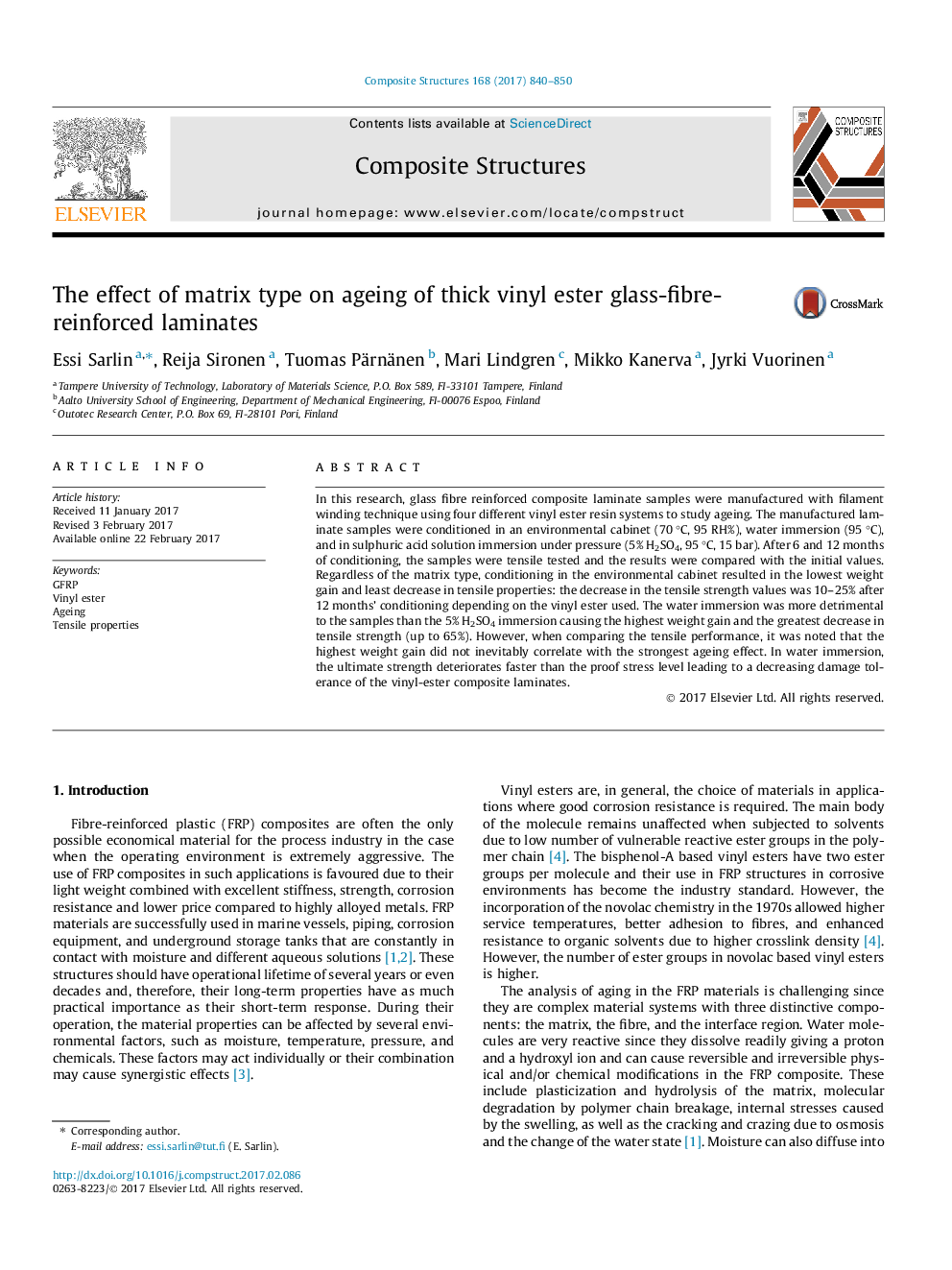| Article ID | Journal | Published Year | Pages | File Type |
|---|---|---|---|---|
| 4912176 | Composite Structures | 2017 | 11 Pages |
Abstract
In this research, glass fibre reinforced composite laminate samples were manufactured with filament winding technique using four different vinyl ester resin systems to study ageing. The manufactured laminate samples were conditioned in an environmental cabinet (70 °C, 95 RH%), water immersion (95 °C), and in sulphuric acid solution immersion under pressure (5% H2SO4, 95 °C, 15 bar). After 6 and 12 months of conditioning, the samples were tensile tested and the results were compared with the initial values. Regardless of the matrix type, conditioning in the environmental cabinet resulted in the lowest weight gain and least decrease in tensile properties: the decrease in the tensile strength values was 10-25% after 12 months' conditioning depending on the vinyl ester used. The water immersion was more detrimental to the samples than the 5% H2SO4 immersion causing the highest weight gain and the greatest decrease in tensile strength (up to 65%). However, when comparing the tensile performance, it was noted that the highest weight gain did not inevitably correlate with the strongest ageing effect. In water immersion, the ultimate strength deteriorates faster than the proof stress level leading to a decreasing damage tolerance of the vinyl-ester composite laminates.
Related Topics
Physical Sciences and Engineering
Engineering
Civil and Structural Engineering
Authors
Essi Sarlin, Reija Sironen, Tuomas Pärnänen, Mari Lindgren, Mikko Kanerva, Jyrki Vuorinen,
